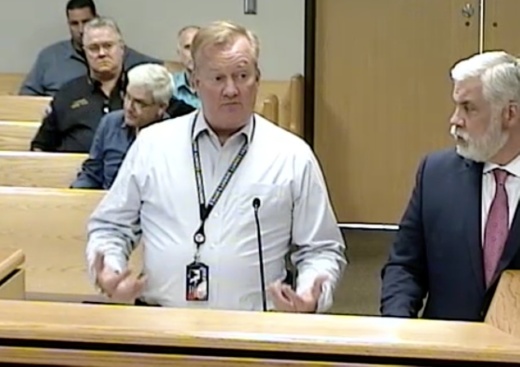Commissioners approved funding various law enforcement departments, including the sheriff’s department, precinct constables and the district attorney, in an amount not to exceed between $200,000-$500,000. The funds, which are reclassified, must be used within one calendar year.
The funds are to be used for overtime, associated benefits and other expenditures related to the “rise in crime as a result of border insecurities,” such as human trafficking and DWI enforcement, according to the agenda.
Precinct 4 Commissioner James Metts introduced the item.
“We’re all aware of the problems that we’re facing at the border down there, and there seems to be a rise in crime rate [in Montgomery County],” he said. “[We want to] show law enforcement ... we have your back.”
Discussions about border security have been ongoing in Montgomery County.
On May 25, Montgomery County commissioners approved a resolution acknowledging the humanitarian crisis at the border. Then, on June 29, commissioners convened for a special session to discuss a local disaster declaration to assess border security and the “ongoing public health crisis it poses to Montgomery County.” The county agreed to send resources such as jailers to the border if needed.
However, commissioners voted to gather more information about the resources requested before the county would agree to a mutual aid agreement.
At the July 13 meeting, County Judge Mark Keough said District Attorney Brett Lignon sent a chief deputy to the border for two days to provide information on what was occurring at the border.
Lignon said if Montgomery County sends personnel to the border, then that reduces the supply of officers serving the county, so personnel will need to work longer and be paid overtime.
“[Commissioner Metts] came up with the idea of how do we help Montgomery County, and how do we help the border,” he said.
Sheriff Rand Henderson said jailers and officers have expressed interest in going to the border, but their No. 1 concern is what rates they will be paid and where they will be living.





